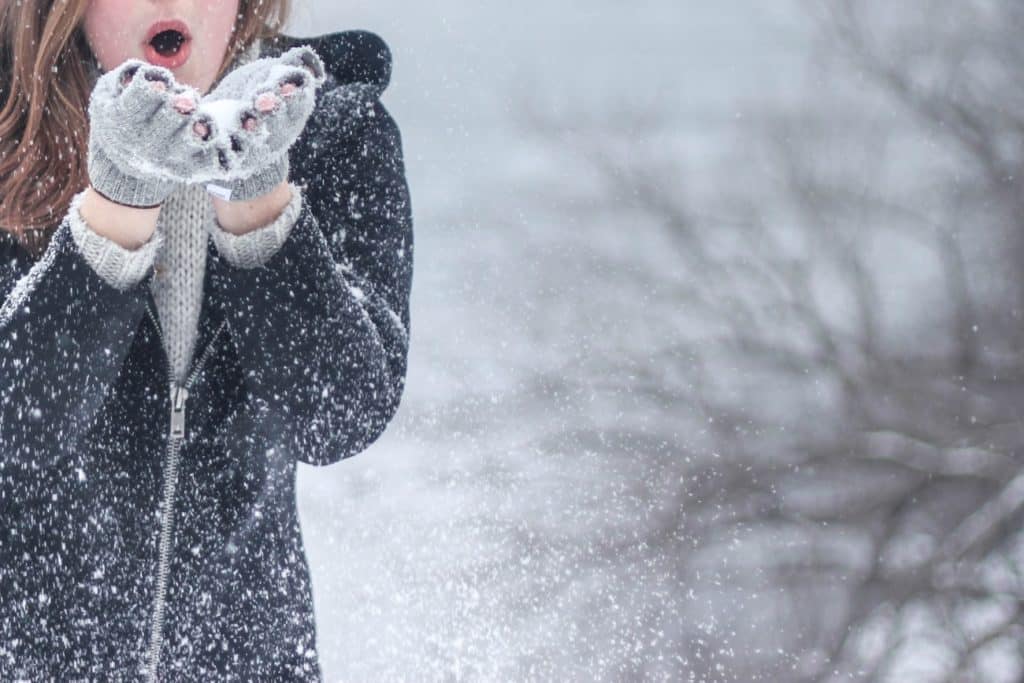Aristotle said, “To appreciate the beauty of a snowflake, it is necessary to stand out in the cold.” This quote reveals a unique perspective that fuels our curiosity. Could winter be good for us?
Discovering and learning is good for us. Perhaps exercising that curiosity can allow a new experience, broadening our mindset and enriching our souls. Such reins true in life as well. Are you a winter person, or would you rather dive under the blankets and hibernate from December until Spring? Some of us do not understand what is so special about winter. This article will help eliminate the winter doldrums and make you appreciate that snowflake.
Why Do I Feel Depressed in Winter?
From a certain perspective, winter is considered a beautiful time of year. In many places, snow adds an aesthetic unmatched by other seasons; however, we don’t see snow everywhere. You may experience, as many of us do, rain puddles instead of the fluffy white blanket covering your lawn. That can be enough to get you down. You may even feel bouts of depression and anxiety from the lack of sunshine. Fortunately, those feelings usually dissipate as we move into Spring.
The negative effects often blamed on winter may also come from a person’s dislike of the holiday madness that ensues. Relatives seem to come out of nowhere, making life awkward and uncomfortable for a few days. You may hate holiday parties but feel compelled to go, which does not help your mood. Finances are stretched to the limit for many of us, resulting in stress and anxiety. You may not be able to enjoy a long walk or run in the woods or by the lake during this time of year, making your days less joyful.
Of course, excessive sadness, stress, and anxiety may lead to depressive disorders, which are more serious. However, the symptoms should not be ignored. If depression persists, talk with a loved one or a professional to get your life back in balance.
Seasonal Affective Disorder
Some people feel down during winter simply because they do not like winter. Feelings of depression in January may not just be post-holiday malaise. It could be a form of depression known as seasonal affective disorder (SAD) or “winter depression.” However, others may experience depressive symptoms that can become more serious. SAD is a type of depression that causes mood changes and usually occurs in the winter.
Some symptoms of SAD include the following, but all symptoms may not be present in every case.
- Anxiety or feelings of sadness
- Feelings of hopelessness or worthlessness
- Pessimism
- Irritability and restlessness
- Loss of interest in activities
- Weight changes
- Inability to sleep or difficulty falling asleep
- Lower energy or feeling tired
- Thoughts of suicide
Treatment to reduce the effects of seasonal affective disorder may include a combination of the following:
- Light therapy
- Antidepressants
- Talk therapy
Light Therapy for Winter Depression
Lack of sunlight for extended periods can affect a person’s mood. It leads to chemical changes in the brain that may also lead to depression. Our bodies rely on sunlight, which increases the neurotransmitter serotonin, which is vital to our well-being. Daylight also regulates the hormone melatonin, which increases during winter, promoting excessive sleeping.
Light therapy is exposure to bright, artificial lighting and treatment for SAD. Also known as phototherapy, exposure to bright light may improve mood in people with depression. Our body’s seasonal rhythms mediate through changes in the hormone melatonin. Our endogenous circadian clock controls melatonin secretion, but exposure to light can cause similar suppression.
Therapy for SAD may include a lightbox or lamp with LED light. Consult a health professional before using light therapy because some conditions contradict light treatment. Some of those conditions include the following:
- Medical conditions like diabetes that involve retina health
- The use of photosensitizing medications such as melatonin and lithium
- Certain antibiotics
Ways to Relieve Seasonal Depression
There are many ways to help alleviate depressive symptoms brought on by the winter season. First, get outside! Bundle up and take a walk in the sun. It may be cold out there, but the sun will replenish you with vitamin D and stave off the blues. If the sun is not shining, exercise anyway. Walking, biking, dancing, or anything that gets you moving will improve your mood.
One unique method for treating winter depressive symptoms is using a dawn simulator. Dawn simulators are also alarm clocks but do not wake you with an abrupt alarm. Rather, their light increases gradually to mimic a sunrise. Some dawn simulators are charming and tend to enhance a person’s mood. The most effective ones use full-spectrum light, similar to natural sunlight.
Meditation, living in the moment, yoga, adjusting your mindset, and keeping social engagements instead of hibernating may help you find winter bliss.
At SoCal Mental Health, we understand that your mental well-being is at the core of your success and quality of life. The challenges associated with winter depression can be overwhelming. If you or a loved one are feeling bouts of depression, other mental health concerns, or recovery issues, help is available. We provide supportive treatment for depression and other mental health issues, which enhances well-being and growth. You will meet others with similar experiences and develop relationships that can last a lifetime. Find peace of mind in knowing you can have the life you want and deserve. Don’t wait; call us today to learn more about our programs at (949) 502-2041.












